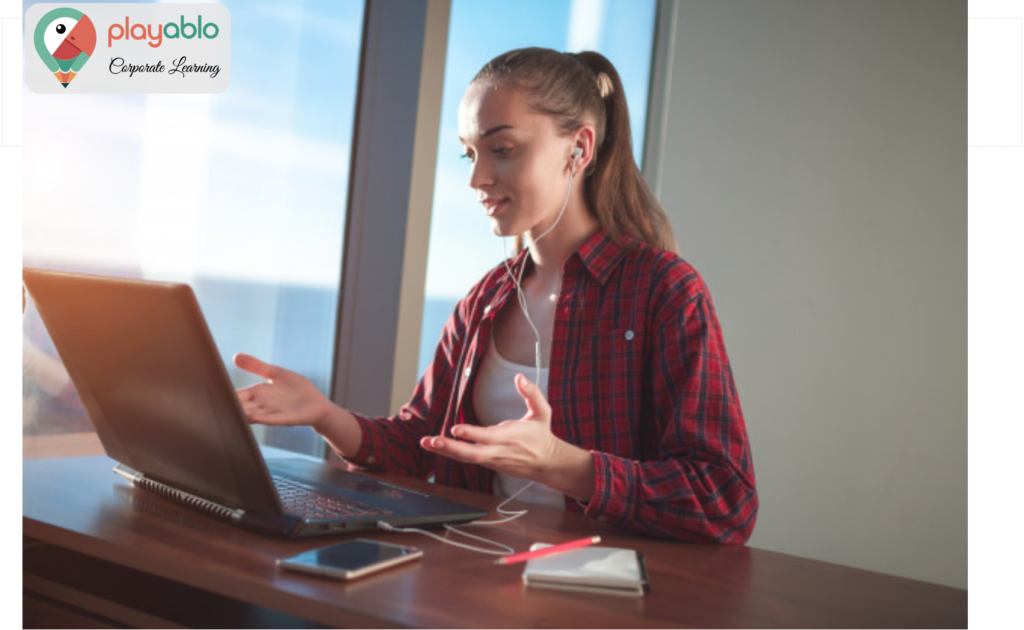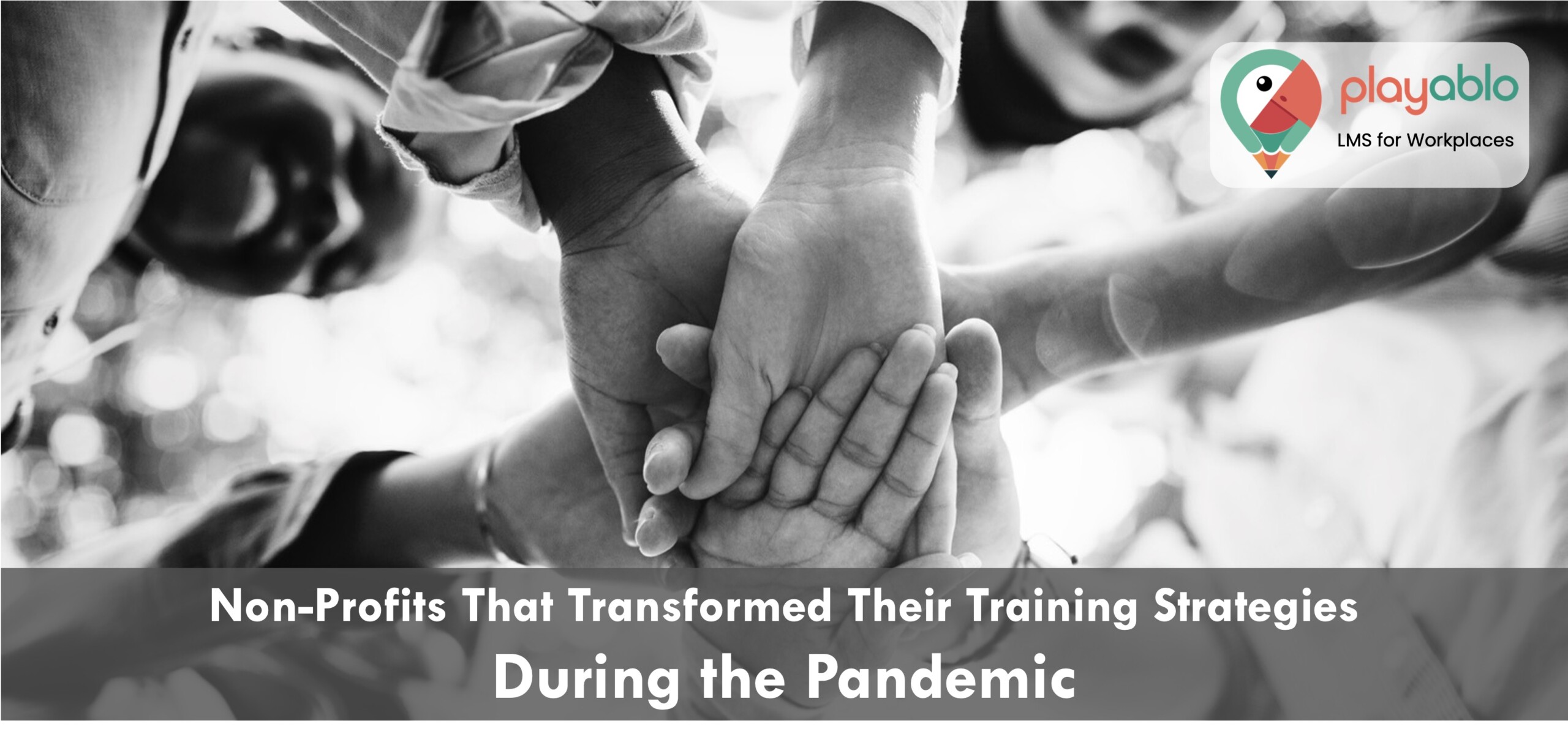In April 2020, Charity Navigator collaborated with Reuters News to conduct a survey of nonprofits. The aim of the study was to estimate the financial and programmatic impacts of COVID-19 on the nonprofit sector. And the results are worrisome.
“83% of respondents reported that they have suffered financially due to the economic shutdown. 64% of respondents confirmed that they are having to cut down on programs.”

Yes, many NGO programs have been forced to press the pause button. And one of the segments worst-affected by the pandemic is the non-profit organizations, which offer vocational training. After the onset of the COVID-19 crisis, with students scattered everywhere due to social-distancing and travel restrictions, and accessibility issues, skill-training NGOs have come to an almost halt with no directions.
In such a scenario, the only way out is technology. When face-to-face interactions are no more an option, we need to turn to the virtual world. And this is exactly what can be done by NGOs that deal with skill-based training programs. With the help of tech-enabled learning, NGOs can continue their sessions online — from any location — using a virtual model. Let us see how!
How Can Online Training Help Nonprofits in Navigating the Pandemic?
The learning habits of the modern millennial are already significantly geared toward digital and on-the-go learning platforms. “In 2019, Accenture Research saw unprecedented consumption in video-based learning on mobile and an uptick in the use of social learning, on-the-job training, and mentoring to enhance performance.” In fact: “The number of users enrolling in online education in India may touch 9.6 million users by 2021!”

After the onset of the global COVID-19 pandemic, this transition has accelerated faster, pushing the demand for digital capacity building, training, and programmatic learning. Organizations have responded to the new normal by digitally training their workforce for new skills and roles. eLearning is not only safe, but it also allows large-scale training in dispersed locations.
Nonprofit decision-makers + content and curriculum designers, and instructors are also embracing this concept of delivering digital content to their learners.
How Can Nonprofits Build Their Digital Roadmap?
To get started, the first step is to analyze the current state of your organization — do you have the tools necessary to go digital? Are you willing to invest in online platforms, and if yes, are your goals for the long term? Moreover, what are your learner preferences?
You first need to answer these questions to design a potential digital roadmap. Once you adopt eLearning software, you can start by analyzing critical gaps, highlighting investment areas, and creating success points. Your programs should also be streamlined per learners’ experience, digital habits, and online literacy. Finally, your organization must have the required IT infrastructure to deploy an eLearning platform.
How Can PlayAblo Help in Creating an Optimized Digital Environment?
PlayAblo is a technology and app-based learning platform that delivers faster impact to training and learning reinforcement. It enables effective learning through its engaging platform, improving employee skills and business performance. The mobile-first platform comes with easy setup and roll-out capabilities, offering multi-device support, an analytical dashboard, gamification, and customization features in easily-digestible micro-chunks.
Ad: PlayAblo’s Enterprise-Grade Micro-Learning platform is built for millennial learners. Micro-Learning, along with assessments and gamification features, ensures learning outcome measurement along with sustained engagement.
Find out more and request a custom demo!
Hear it From Our Clients Who Have Successfully Adopted Virtual Training to Adapt to the Pandemic
SMILE Foundation
Smile Foundation is among the top NGOs in India, which works intensively through focused welfare projects in four key areas – “child education for poor children, healthcare for families, skills training and livelihood for youth, and community engagement through women empowerment.”
With the onset of the pandemic, SMILE had to face a roadblock of halting their in-class sessions — geared toward skills training. However, with the deployment of PlayAblo, specifically for their English classes, they could continue their sessions without interruption. You should also know that PlayAblo uses the Patented NLP technology from CARNEGIE Speech.
SWASTI
SWASTI, in partnership with local academic institutes, has been working extensively toward MSME training — to uplift the small-scale business sector in India. This NGO caters to capability building and enhancing the skillsets of youngsters above 18.
Since the learning audience mainly consists of young adults, it was a tad simpler for SWASTI to embrace the concept of mobile learning once the pandemic forced the NGO to halt its offline training sessions. Young adults (aged between 18-29 years) strongly favor smartphones, so the transition is easier and faster.
Recent studies suggest that “Young people (university students aged 20-36) used their mobile phone 6h/day (hours per day) on average before the pandemic, increasing to over 8h/day on average during the pandemic.”
SWASTI has used this trend to its benefit by deploying PlayAblo’s mobile-optimized micro-learning platform — to continue holding skill-based training classes — virtually and without much hindrance.
Ad: PlayAblo’s Enterprise-Grade Micro-Learning platform is built for millennial learners. Micro-Learning, along with assessments and gamification features, ensures learning outcome measurement along with sustained engagement.
Find out more and request a custom demo!
UNNATI
Unnati is another non-profit catering to comprehensive youth empowerment through vocational training and transformation programs. These curricula enable our underprivileged youth to secure stable employment. Unnati has partnered with PlayAblo to incorporate online training in their learning methodology. You can check out for yourself what CEO Ramesh Swamy had to say about how PlayAblo helped the organization navigate the pandemic:
“The experience with PlayAblo has been an exciting experience. Exciting because we started with the premise that introducing E-Learning to our group of youth will be difficult and may not be workable. We have worked alongside PlayAblo in making the required changes, gamification, reporting to help tide over the situation. We are very sure that many organizations will not work closely with the implementing organization the way PlayAblo has worked with us. We have necessarily pointed out the camaraderie which was in place among the teams which also has helped immensely.“
To sum it up, the journey from brick-and-mortar models to a 100% online module might take time, no doubt. But it is the best bet if you, as a nonprofit, wish to scale up your training efforts and productivity in these testing times.







Comments are closed, but trackbacks and pingbacks are open.